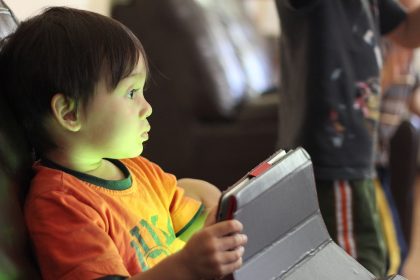Is homework good or bad for children’s development?
Love it or hate it, homework is a fact of school life. But how beneficial is it? We explore the good and bad points of homework – and its impact on children’s development.
It’s bad enough having to to homework when you’re at school. But trying to encourage/force your child to do it can be a whole new level of hell – as you discover once you become a parent.
And just what is the point of homework anyway? Even the BBC recently questioned whether homework was ‘worth the hassle’. And in 2012, the President of France called for a ban on homework in primary schools.
Is homework good or bad for children?
To find out, we asked education specialists ITN Mark Education to explore whether or not homework is good for a child’s development. And they came back with a number of good and bad points.
Good – homework teaches children responsibility
One of the most positive attributes of homework is that it can teach children responsibility from a young age. The homework is supposed to be the child’s (not the parent’s!) responsibility to complete.
This means that they’ll be able to learn to be accountable for their actions – if they don’t choose to complete their homework they’ll encounter a punishment at school. If they do well in their homework they’ll be praised and rewarded by their teacher.
Bad – homework can be stressful
However, many people argue that homework can be stressful, especially for younger children. Younger pupils can sometimes find that homework is too hard to handle, causing them to get stressed which, in turn, can discourage them from learning.
If children sit through lessons all day and are then given a large amount of homework to complete in the evenings, this could result in them losing interest in school work altogether.
Good – homework encourages good time management
As homework is the responsibility of the pupil, it’s up to them to choose when to complete it to make sure they get it done on time. This encourages them to develop good time management, a vital skill which will benefit them for the rest of their lives.
As we get older, we realise how much time management impacts us in our everyday tasks. Many job roles include working to tight deadlines and so children who have the responsibility of homework from an early age enter the world of work with an awareness of urgency, and know how to prioritise tasks under their own management.
Bad – homework can be a burden
Again, this is especially true for younger children. Homework can be tiring for pupils, especially if they already engage in extracurricular activities after school and have to complete their homework later on.
In these cases, homework just means that pupils have to stay up later to finish it, which makes them tired for the next day at school. In fact, pupils who are completing homework when they are this tired most likely don’t get much benefit from it anyway.
Good – homework can instil good study habits
Many children today spend an increasing amount of time watching TV and playing on video games. Although these do each have their own benefits, having homework to do decreases the time spent in front of the TV and encourages them to use problem solving skills when they would possibly be not putting their time to good use.
Having regular homework means that kids will be able to understand the importance of studying, and even learn to enjoy it, so that they can have a good balance between work and play.
Bad – you can’t guarantee that the pupil has done it
A growing problem with homework is that, no matter what the teacher is told, there’s never any guarantee that it has actually been completed by the pupil themselves.
All too often, parents find themselves completing their child’s homework late at night before the deadline day. When this happens, it is just a waste of time for the parent, pupil and the teacher marking the work.
Homework can be positive
To sum up, homework can be an incredibly positive thing for pupils. However, it’s important to remember that too much homework can result in stress and tiredness, especially in younger children.
As a teacher, it’s important to remember that children need a good balance of work and play to flourish, so avoid setting homework tasks that will take hours.
If you’re a parent and your child is experiencing some difficulties with their homework, by all means offer them support and help them if they get stuck. However, avoid doing their homework for them completely.
How to stop the nightly homework fights
Tired of battling with your children over homework? Read tips on how to stop homework fights:
ITN Mark Education are one of the UK’s largest and most respected recruitment specialists.










